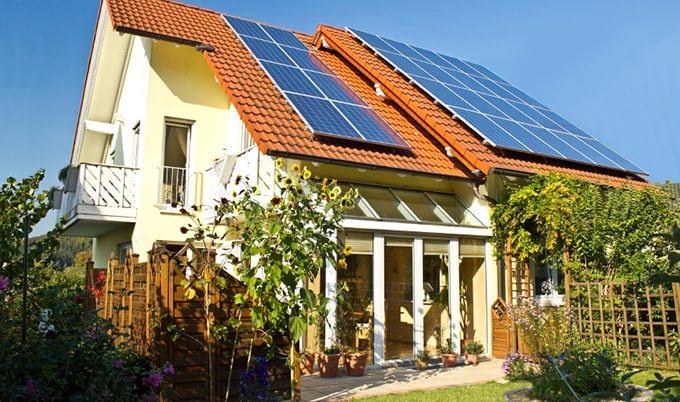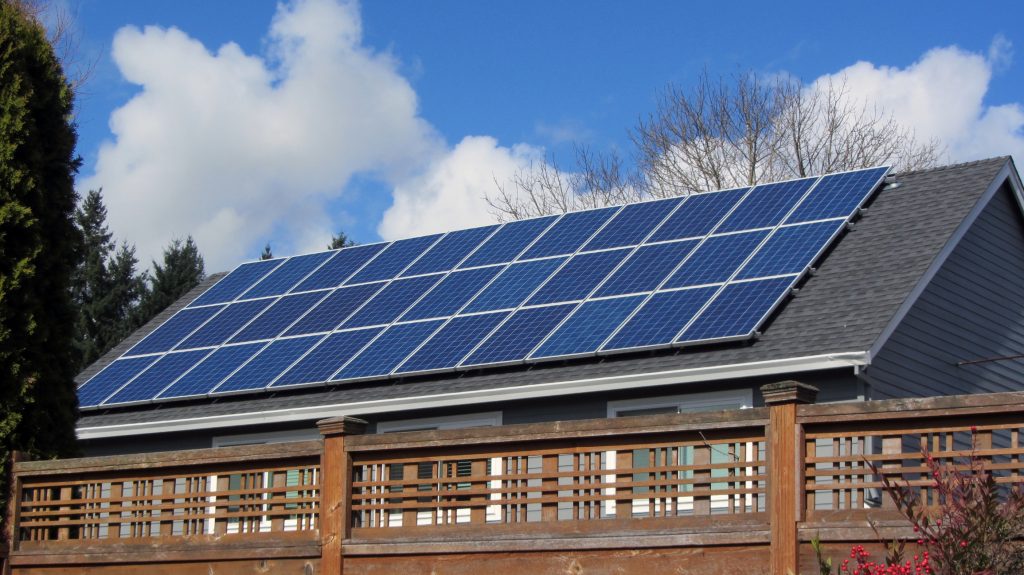Do Solar Panels Affect House Insurance? – Home Insurance Cost
How do solar panels affect house insurance?
The majority of rooftop solar energy installations are covered by standard homeowners insurance, which has no effect on your policy. However, in order to account for the cost of the system, you may need to increase the amount of coverage on your house.
Solar panels affect homeowners insurance rates in a few ways. One is that the increased value of the home could raise rates. Additionally, if a homeowner makes significant changes to their home to accommodate solar panels, like adding new wiring or changing the roofline, it could be considered a material alteration and lead to higher premiums.
What Does Home Insurance Covers?
In the United States, a typical homeowners insurance policy will cover the cost of repairing or replacing your house and its contents if it is damaged. That typically includes fire, smoke, theft, or vandalism damage, as well as weather-related damage such as lightning, wind, or hail.
Typically, home insurance cover solar panels that are attached to the roof of a home. If there is an incident or accident involving the solar panels, the homeowners’ insurance policy may provide coverage for any damages that occur.
Homeowners insurance does not cover the cost of installing solar panels. The cost to install a solar panel system is typically covered by a home equity loan or line of credit, which will be repaid over time with savings from reduced energy costs.
Solar panels are a big investment, and homeowners should be sure to take the appropriate steps to protect their investment.
Are solar panels covered by homeowners insurance?
Solar panels are covered by homeowners insurance if attached to the home.
In general, home solar panels are covered by homeowners insurance. If the solar panels are damaged or destroyed by a covered peril, such as fire, theft, or vandalism, the coverage will kick in. However, make sure you increase your dwelling coverage to reflect the added value solar panels bring to your home. That way, you’re fully protected in case of an incident.
How will solar panels impact your home insurance policy?
Increasingly, homeowners, insurance premiums are going up for property owners who add solar panels to their homes and obtain coverage. This is primarily due to the fact that solar panels are still costly, and adding the replacement cost is most likely to raise your coverage limit.
Solar panels are becoming more and more popular in the United States, as homeowners look for ways to save on their energy bills. However, many people don’t realize that installing solar panels can also impact their home insurance policy. Most homeowners insurance policies do cover solar panels, but the extent of that coverage may vary depending on the type of system you have installed.
For example, if you have a solar panel system that is connected to your home’s electrical grid, your insurer will likely consider it to be part of your home and will not offer additional coverage. However, if you have a stand-alone solar panel system that is not connected to the grid, your insurer may offer additional coverage for it.
Solar panels covered by homeowners insurance are a good thing, but it’s not the only consideration. If your solar panels are damaged or destroyed by something that isn’t covered by your policy, you will have to pay for the repairs or replacement out of your own pocket.
What if my solar panels aren’t attached to my house?
If you have solar panels that are not attached to your house, it is important to speak with an insurance agent about whether or not you need a separate policy or endorsement for those panels. Without the proper coverage, if something happens to your solar panels, you may not be able to get reimbursed for damages.
Solar panels are typically attached to the roof of a house, which means that they’re covered by your homeowners’ insurance. However, if you have solar panels that aren’t attached to your home and are instead on a separate structure, you may need to purchase an endorsement or additional policy to cover the panel.
The best way to find out if you need additional coverage is by contacting your insurer and asking about your policy.
Solar panels are typically covered by a homeowners’ insurance policy, but it’s important to check with your insurer before you install them on your home. If you have additional questions about solar panels and insurance, contact your local Better Business Bureau.

Will installing solar panels increase my insurance premium?
Before you hop on the solar train, make sure you talk to your insurance agent about coverage limits. Should a disaster strike, like a hurricane, you want to make sure the coverage limit of your policy is enough to repair both your home and your panels.
The coverage you had in place before installing new solar panels may not be enough to cover the cost of repairs or replacements in the event of filing a claim. Solar panel systems are relatively new, so insurance companies are still figuring out the best way to handle claims related to damage.
When should I purchase separate solar panel insurance?
If your insurance doesn’t cover solar panels but instead offers limited coverage, you might need a supplementary policy. Some solar panel insurers may not cover wind or hail damage, just like some home insurance companies.
Solar panels are an essential part of any solar-powered home. They are required to help you generate electricity and power your appliances.
However, they are not foolproof. If you don’t have a solar panel insurance policy in place, you may be exposed to paying for the damage caused by a solar panel failure.
When deciding whether or not to purchase solar panel insurance, there are a few factors you should consider. One of the most important is whether your homeowners’ insurance policy will cover solar panels in the event of damage or theft. If it does not, then you will need to purchase separate solar panel insurance. Other factors to consider include the cost of the policy and its coverage limits.
You can compare the insurance policies of several different companies to get a good idea of how much coverage you need. Solar panel insurance is relatively inexpensive, so it’s best to find out exactly what your policy will cover before you decide to buy it.
Leased and PPA solar panel insurance

If you have leased solar panels or bought them through a Power Purchase Agreement, the third party who technically owns them will be responsible for any damages or insurance claims. This is important to keep in mind if something happens to your panels and you need to make an insurance claim.
Many people are surprised to learn that leased and PPA solar panel installations are not automatically covered by homeowners insurance policies. Although the average installation costs between $11,144 and $14,696, it’s important to check with your insurance company to see if they do offer coverage. If they don’t, you can often add a rider policy for an additional cost.
Other things to consider before installing solar panel systems
Homeowners Associations (HOA) can place restrictions on solar panel installation.
Before installing solar panels, it is important to consider any restrictions that may be placed on them by your Homeowners Association. HOAs can place a wide variety of restrictions, such as prohibiting certain types of panels or requiring special permits.
Local rules and regulations may apply when installing solar panels.
When installing solar panels, it is important to be aware of any local rules and regulations that may apply. For example, some areas have restrictions on the size or type of solar panel that can be installed. It is also important to research any financial incentives or rebates available in your area.
Energy needs and budget.
There are a few things homeowners should consider before installing solar panels on their property. One of the most important is how much energy they use and whether or not they will be able to afford the solar panel installation cost. Additionally, homeowners should research state and local incentives that may be available to help offset the cost of installation. Solar energy system owners should also be aware of how their panels will affect their home insurance rates.
Orientation and location
Be sure to consider your property’s orientation and location before installing solar panels. Panels should be installed on a south-facing roof or in an open area that receives plenty of sunlight. You’ll also want to make sure there is enough space on your property to install the necessary equipment.

Do solar panels increase the cost of homeowners insurance?
You may not see an increase in your homeowners’ insurance premium after installing solar panels on your roof. However, you’ll likely need to raise your coverage limits to account for the replacement cost of your solar panels, which will likely result in some increase to your premium. The additional cost of raising your coverage will be offset by the savings you’ll see on your energy bill.
